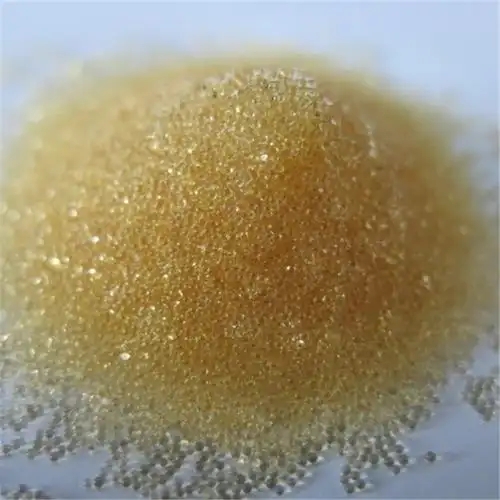Ion Exchange Resins Application Cases in Malaysia Water Treatment Market
In the modern water treatment industry, ion exchange resin plays an indispensable role as an important water treatment material. Especially in Malaysia, with the acceleration of industrialization and the increase in water resource demand, water treatment service providers who contract water treatment projects are increasingly relying on efficient water treatment technology. Recently, a Malaysian water treatment service provider purchased a batch of basic ion exchange resins to improve its soft water treatment capabilities.
Ion exchange resin is a polymer material with special chemical properties that can remove ions from water through ion exchange reactions. Its working principle is to exchange hardness ions in water (such as calcium and magnesium) with sodium ions in the resin, thereby reducing the hardness of the water and achieving the effect of soft water. The wide application of ion exchange resins makes it an important part of the water treatment industry.
Ion exchange resins are mainly divided into cation exchange resins and anion exchange resins. Cation exchange resins are mainly used to remove cations from water, while anion exchange resins are used to remove anions. For water treatment service providers in Malaysia, basic ion exchange resins provide a cost-effective solution suitable for general soft water treatment needs.
Malaysia has abundant water resources, but with the process of urbanization and industrialization, the quality and supply of water resources face many challenges. The discharge of industrial wastewater, agricultural runoff and urban sewage has led to the pollution of water sources, which has increased the demand for water treatment. In this context, the use of efficient water treatment technology is particularly important.
Using ion exchange resins for water treatment has many advantages. First, ion exchange resins can efficiently remove hardness ions in water and improve water quality. Secondly, ion exchange resins have a long service life and low maintenance costs, which are suitable for large-scale water treatment projects. In addition, ion exchange resins also have good chemical stability and can adapt to changes in different water qualities.
In the process of soft water treatment, ion exchange resins are particularly widely used. By exchanging hardness ions such as calcium and magnesium in water with sodium ions in the resin, the hardness of water can be effectively reduced and the water quality can be improved. This process not only improves the efficiency of water use, but also extends the service life of pipes and equipment.
The ion exchange resins purchased by the water treatment service provider in Malaysia this time are precisely to meet the growing demand for soft water. During the implementation of the project, the service provider will select the appropriate type of ion exchange resin according to the actual situation of the water source to ensure the efficiency and economy of water treatment. In addition, the service provider will regularly monitor the water quality to ensure that the effluent indicators meet the relevant standards.
With the continuous advancement of water treatment technology, the research and development of ion exchange polymer compounds is also continuing to advance. The new ion exchange resin not only improves the exchange capacity, but also has better temperature and acid resistance, which is suitable for more complex water treatment needs. When selecting ion exchange resins, water treatment service providers in Malaysia will pay attention to the application of these new materials to improve the overall water treatment efficiency.
In the water treatment industry in Malaysia, the application of ion exchange resins is becoming more and more important. By purchasing basic models of ion exchange resins, water treatment service providers can improve soft water treatment capabilities to meet market demand. With the continuous advancement of technology, ion exchange resins and their polymer compounds will continue to play an important role in promoting the development of the water treatment industry.